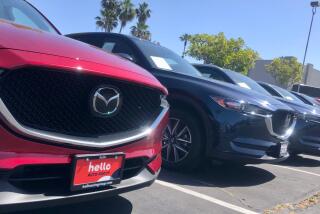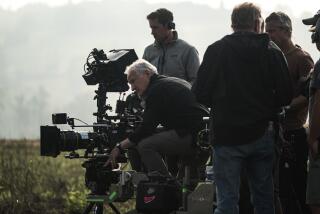Pebble Beach: The future of Ferrari
Ferrari used the Pebble Beach weekend, and the deep pockets it attracts, to unveil to North America its all-new F12berlinetta. And in so doing, tipped its hand for the future of the company’s products.
Ferrari CEO Amedeo Felisa was on hand to display the front-engine, rear-wheel-drive brute. The car has a naturally-aspirated, 6.3-liter V-12 engine that makes 731 horsepower and 509 pound-feet of torque, directed through a seven-speed, dual-clutch gearbox. Ferrari says it weighs about 110 pounds lighter than the car it replaces, the 599. But it’s not the weight that’s noteworthy.
It’s the aluminum.
While many other supercar makers in this rarified stratosphere of power and speed are throwing their efforts behind carbon technology (Lamborghini and McLaren come to mind), Felisa says it’s still too early to use that material extensively in the construction of Ferraris.
“It’s a marketing reason,” Felisa says of the use of carbon fiber.
Felisa says that according to Ferrari’s forecast, carbon technology won’t be where the company needs it to be when making 10 to 15 cars a day until 2020. Much of this comes down to the resins used, he says. (Think of resin as a sort of glue-like substance that’s applied to the carbon, which then hardens when molded using heat and or pressure). Right now, the resins are just too heavy and lack the mechanical characteristics Ferrari wants.
Instead, the F12berlinetta uses 12 different aluminum alloys in its chassis and body, and to sound effect. The company says the F12 is both lighter and stiffer than the Ferrari 599.
So don’t expect full-carbon Ferrari cars rolling into dealerships anytime soon.
Also not in Ferrari’s plans? A four-door model. “We are consistent in product,” Felisa says. “That means always two-doors.”
This product direction draws a contrast between Ferrari and Lamborghini, the latter of which had on display a concept of its proposed Urus SUV. Porsche, with its Cayenne SUV and Panamera sedan; and Aston Martin and its Rapide sedan also come to mind as examples of sports-car brands willing to broaden their portfolios with four-door offerings.
That’s not to say Ferrari isn’t open to new ideas and new ways to grow. This is key to surviving as global markets like China, India and Russia expand. The company’s all-wheel-drive FF coupe, which seats four actual adults in relative comfort, is a relatively radical departure. But it’s one Felisa says allows more flexibility for customers to experience a Ferrari that’s more practical than some of the company’s other products.
The FF “is fun to drive at 120 kph, not just 200 kph. It’s the same emotion of driving,” Felisa says. “We are engineers, but we love cars.”







